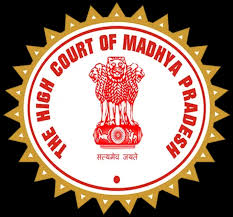Vaidya, J.@mdashThe petitioner, in the above Application, Rajahusein Gulamhusein Lakhani, was convicted, in Criminal Appeal No. 953 of. 1966, u/s 302 of the Indian Penal Code; and sentenced to suffer imprisonment for life, in connection with the stabbing of one Abdul Jabbar and one Nazir Ahamed, by this High Court on April 26, 1968. He filed a petition for special leave to appeal (C. R. No. 761 of 1968) in the Supreme Court; but that petition was dismissed by the Supreme Court on October 14, 1968-He is now suffering the sentence in Nasik Road Central Prison, Nasik.
2. He has filed the above Application, claiming the benefits u/s 428 of the Code of Criminal Procedure, 1973, which came into force on April 1, 1974. The said Section runs as follows:
Where an accused person has, on conviction, been sentenced to imprisonment for a term, the period of detention, if any, undergone by him during the investigation, inquiry or trial of the same case and before the date of such conviction, shall be set off against the terms of imprisonment imposed on him on such conviction, and the liability of such person to undergo imprisonment on such conviction shall be restricted to the remainder if any of the term of imprisonment imposed on him.
3. According to the petitioner, who has sent the above petition through jail, he is entitled to the benefit of Section 428 of the new Criminal Procedure Code, in view of the decision in
4. Mr. Chitnis, the learned Public Prosecutor, appearing for the State, has opposed this application on the ground that Section 428 is not attracted to this case as the petitioner was sentenced to suffer "imprisonment for life" and not "imprisonment for a term" as required by Section 428 of the Code of Criminal Procedure, 1973. In support of his submission, he has relied on the decision of the Supreme Court in Gopal Vinayak Godse v. State of Maharashtra 63 Bom LR 517 : 196M Cri LJ 736 (SC), where in respect of a somewhat similar claim made under the Rules framed under the Prisons Act, 1894, which enabled such a prisoner, who is sentenced to life imprisonment, to earn remissions which would be given credit towards his term of imprisonment, the Supreme Court held:
For the purpose of working out the remissions the sentence of transportation for life is ordinarily equated with a definite period, but it is only for that particular purpose and not for any other purpose. As the sentence of transportation for life or its prison equivalent, the life imprisonment, is one of indefinite duration, the remissions so earned do not in practice help such a convict as it is not possible to predicate the time of his death. That is why the rules provide for a procedure to enable the appropriate Government to remit the sentence u/s 401 of the Criminal Procedure Code on a consideration of the relevant factors, including the period of remissions earned. The question of remission is exclusively within the province of the appropriate Government.
A sentence of transportation for life or imprisonment for life must prima facie be treated as transportation or imprisonment for the whole of the remaining period of the convicted person''s natural life. Such a person has no indefeasible right to an unconditional release on the expiry of a particular term including remissions.
5. Mr. Chitnis submitted, relying on the aforesaid observations, that even under the new Code, the said observations would apply in respect of imprisonment for life, as u/s 433 (b) of the new Code, the appropriate Government can commute a sentence of imprisonment for life to imprisonment for a term not exceeding fourteen years or for fine.
He has also submitted that Chapter III of the Indian Penal Code, makes a distinction between the "imprisonment for life" and "imprisonment for a term" in Sections 53A and 55 of the Indian Penal Code, and, therefore, Section 428 of the new Code when it speaks of "imprisonment for a term", cannot apply in the case of the petitioner, who is "imprisoned for life". In support of his argument, he further relied on an unreported order passed by Deshmukh and Sapre, JJ. on April 7, 1975, where a similar application was rejected on the ground that "the concessions alleged do not apply to life imprisonment".
6. The submissions made by Mr. Chitnis, are well founded. There is a clear difference made in the Indian Penal Code between "imprisonment for life" which is one of the kinds of punishments mentioned in Section 53 and "imprisonment for a term" which is another kind of punishment mentioned in that section. We also find a difference in Section 53A between the "transportation or imprisonment for life" and "transportation or imprisonment for a term". In Section 55 it is stated, "In every case in which sentence of imprisonment for life shall have been passed, the appropriate Government may, without the consent of the offender, commute the punishment for imprisonment of either description for a term not exceeding fourteen years." This section, therefore, makes a distinction between imprisonment for life and imprisonment for a term not exceeding fourteen years,
7. Section 2 (y) of the Code of Criminal Procedure, 1973, lays down that "words and expressions used herein and not defined but defined in the Indian Penal Code have the meanings respectively assigned to them in that Code." It is true that the words "imprisonment for a term" are not defined in the Indian Penal Code or in the Criminal Procedure Code; but the expressions must have the same meaning in both the Codes. We have, therefore, no hesitation in holding that when Section 428 of the Code of Criminal Procedure, 1973, refers to "imprisonment for a term" it does not refer to "imprisonment for life.
8. The petitioner is, therefore, not entitled to the benefit u/s 428 of the new Criminal Procedure Code.
9. The rule is, therefore, discharged.

